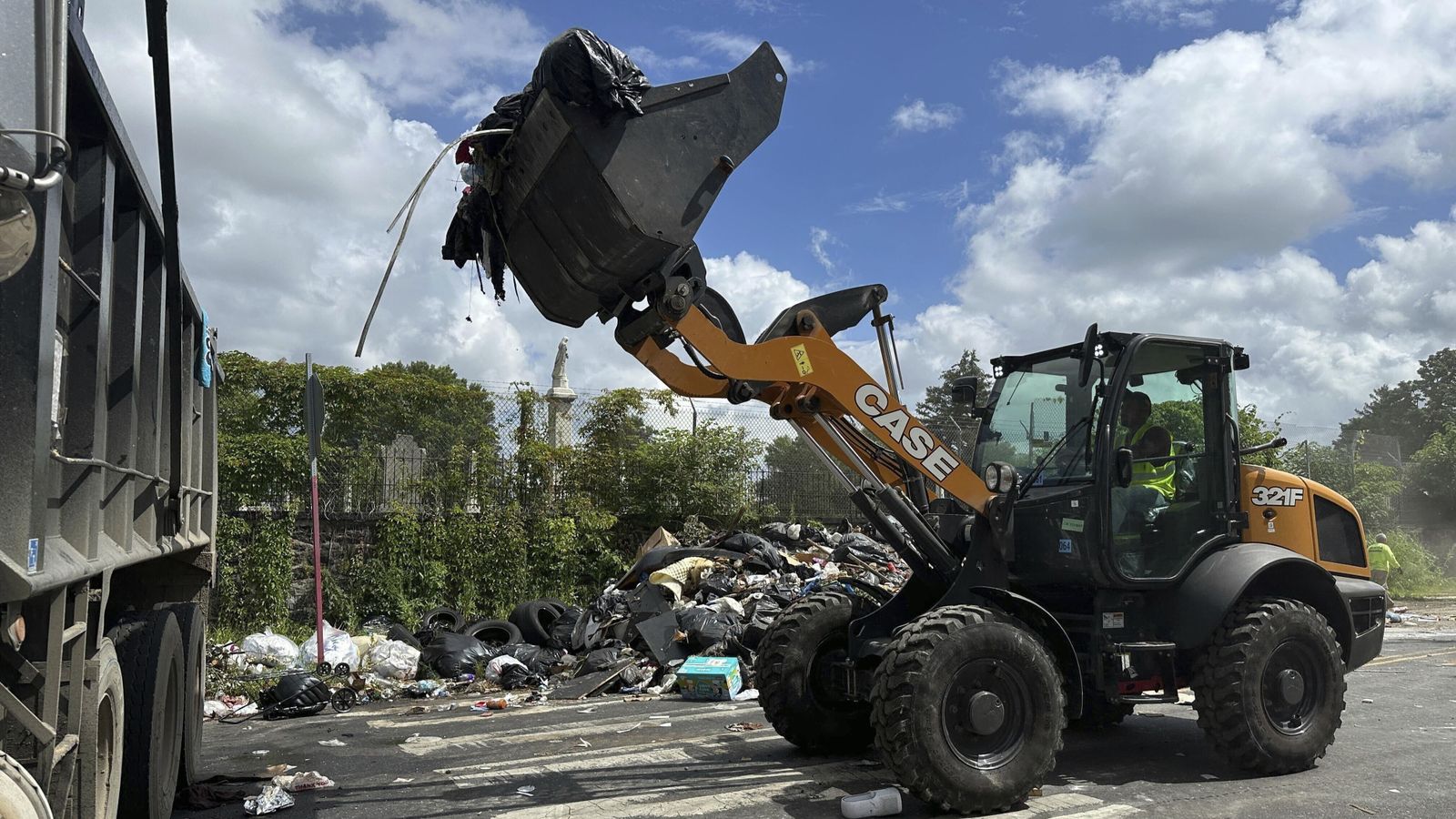Philadelphia’s American Federation of State, County and Municipal Employees (AFSCME) District Council 47 (DC 47) announced on Friday that it had ratified a three-year tentative contract agreement with the city of Philadelphia after voting ended on Thursday. Of the nearly 3,800 members of District Council 47, only 2079 ballots were cast, a turnout of just 55 percent.
Prior to announcing a tentative agreement, the union was calling Mayor Cherelle Parker’s proposal of 8 percent wage increases over a three-year period “unacceptable.” Despite this posturing, three days later the union announced a tentative agreement including an 8.5 percent wage increase over three years: 2.5 percent the first year and 3 percent the next two, which was 0.5 percent more than initially offered.
The union hailed the agreement and encouraged a “yes” vote. The contract also includes a one-time $1,250 bonus, but workers will keep only about 60 percent after taxes. It still requires workers to live within Philadelphia, where the cost of living is higher than in the suburbs.
The contract ignores “alternative work schedules” like remote or flexible work, a major concern among workers won during the pandemic. Before this contract, the city removed these protections under the Parker administration, aligning with ruling class policies more broadly for turning back the clock on COVID-19 protections. Although this violated the contract, the arbitration sided with the city, and the union conceded the issue without a word.
Upon ratification, the Philadelphia corporate press could not contain their sense of relief. An article by the Philadelphia Inquirer, published less than 10 minutes after the results were announced, expressed this sentiment by declaring in the headline that the “summer of municipal labor unrest is likely over.”
In reality, the contracts of DC 47 and DC 33 settle nothing for the workers. Philadelphia transit workers are facing the expiration of their one-year contract in November, which was rammed through last November to avoid a strike. This occurs as the Southeastern Pennsylvania Transit Authority (SEPTA) faces funding cuts, which will cut personnel and service routes that workers and students in the city rely upon to commute.
At the same time, 14,000 public school teachers in Philadelphia voted 94 percent in favor of authorizing a strike next month if a contract isn’t in place, raising the prospect for a citywide shutdown of public schools as the school year begins.
The Inquirer admits in its article that future struggles are indeed coming. It notes that several more groups of city employees—the firefighters and the police—still must work out contracts, but they are legally barred from striking.
Significantly, the publication states contracts may be rewritten by the city under certain circumstances, such as “if it is in dire straits financially.” It declares that it could be the case if “there is a sudden economic downturn, or President Donald Trump makes good on his threats to cut federal funding to cities.” The Inquirer calls these entirely plausible scenarios “unlikely.”
Much like in Chicago, Philadelphia workers could find themselves in a situation where the city reopens their contracts in order to make substantial cuts and layoffs after the ink has dried on their bargaining agreement.
The present situation makes clear that the Philadelphia Workers Rank-and-File Strike Committee, formed by workers to oppose AFSCME bureaucrats’ sell-out of their strike, has waged an absolutely necessary fight to take control of the fight against City Hall and place the initiative into the hands of the workers themselves.
The ratification of the agreement comes after an eight-day strike by members of AFSCME District Council 33. The strike was shut down right before DC 47 workers began their own strike vote, raising the potential of a broader struggle that could escape the control of the union bureaucracy and develop into an all-out fight against the Democratic Party.
Throughout the course of the strike, AFSCME sought to block a joint struggle. DC 47’s contract expired on July 1, alongside DC 33. The leadership of DC 47 and the city of Philadelphia signed a two-week extension of the contract in order to pre-empt a strike after members of DC 33 voted 95 percent in favor of a work stoppage.
On July 14—after the DC 33 strike had already been shut down—AFSCME announced that 76 percent of DC 47 members voted in favor of a strike. The very next day, DC 47 announced a tentative agreement.
During the voting period on the contract, members of DC 47 reported being summoned to “town hall” style online events in which union leaders shamelessly promote the TA while refusing to let members speak or ask questions.
Many workers simply refused to vote on the contract or expressed open hostility towards it. “Still waiting for the part ‘we’re gonna love [it],’” wrote one worker on Facebook in response to the announcement that the contract was ratified. Another worker on Instagram stated that “[the union leaders] are all friends with the Mayor. No one can tell me otherwise!”
The outcome of the next phase of the struggle depends on what workers do now in the struggle for a new offensive.
In its founding statement, the Philadelphia Workers Rank-and-File Strike Committee declared that “[t]his strike has shown that workers are ready to fight. It has shown that the ruling class—Democrats and Republicans alike—are terrified of a real working-class movement. And it has shown that a different leadership is needed. That is the purpose of the Philadelphia Workers Rank-and-File Strike Committee and the International Workers Alliance of Rank-and-File Committees.”
Sign up for the WSWS email newsletter
